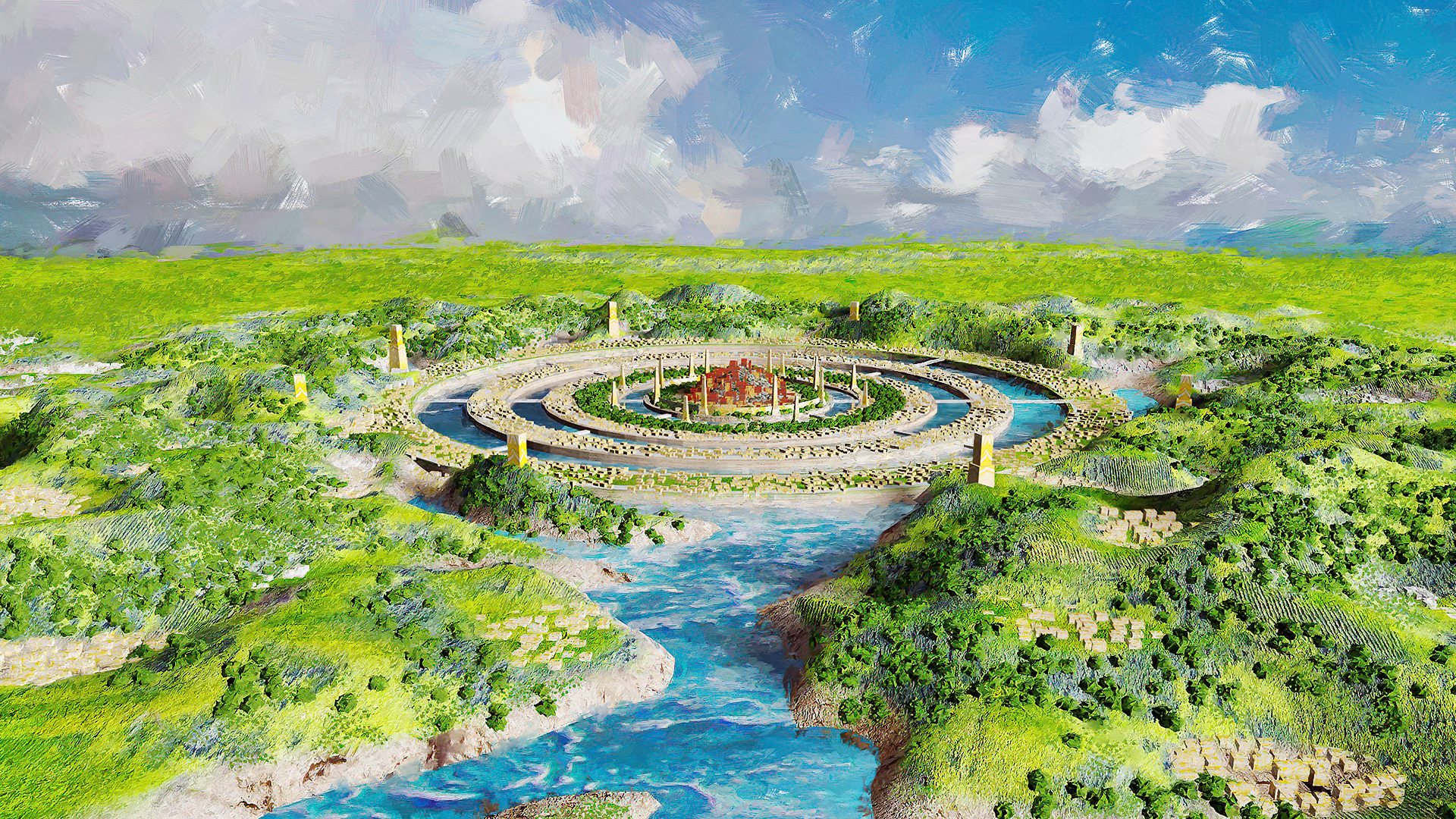Overview
Introduction to Atlantis
The lost city of Atlantis has captivated the imaginations of people for centuries. According to ancient Greek philosopher Plato, Atlantis was a powerful and advanced civilization that existed over 9,000 years ago. Plato described Atlantis as a utopian society with impressive architecture, advanced technology, and a thriving economy. However, despite the detailed account provided by Plato, the existence of Atlantis remains a subject of debate and speculation. The top five theories about the Lost City offer different explanations for its existence and location.
Historical references to Atlantis
Historical references to Atlantis date back to ancient times, with mentions of the legendary city found in various texts and accounts. One of the earliest references can be traced back to the works of the ancient Greek philosopher Plato, who described Atlantis as a powerful and advanced civilization that existed around 9,000 years before his own time. According to Plato, Atlantis was a highly advanced society with a sophisticated political system and advanced technology. The story of Atlantis has captured the imagination of people throughout history, and its existence has been the subject of much debate and speculation. While some believe that Atlantis was a real place that was lost to some catastrophic event, others argue that it is merely a myth or allegory. Despite the lack of concrete evidence, the mystery of Atlantis continues to fascinate researchers and explorers, who are driven by the desire to uncover the truth behind this ancient legend.
Theories about the location of Atlantis
One of the most intriguing aspects of Atlantis is its elusive location. Many theories have been proposed regarding where this legendary city might have existed. Plato, the ancient Greek philosopher who first mentioned Atlantis, described it as being located beyond the Pillars of Hercules, which are believed to be the modern-day Strait of Gibraltar. Some historians and archaeologists believe that Atlantis could have been a real place and suggest possible locations such as the Mediterranean, the Caribbean, or even Antarctica. Others argue that Atlantis is purely a myth and dismiss any claims of its existence. Ancient civilizations such as the Minoans and the Egyptians have also been linked to Atlantis, adding to the mystery. Scientific theories propose that geological events, such as volcanic eruptions or earthquakes, could have caused Atlantis to sink into the sea. Despite extensive research and speculation, the true location of Atlantis remains a subject of debate and fascination.
Theories about the Existence of Atlantis

Plato’s account of Atlantis
Plato’s account of Atlantis is one of the most well-known and influential descriptions of the lost city. According to Plato, Atlantis was a powerful and advanced civilization that existed around 9,000 years before his own time. He described Atlantis as a utopian society with a highly organized government and advanced technology. The city was said to be located beyond the Pillars of Hercules, which are believed to be the Strait of Gibraltar. Plato’s detailed account of Atlantis has captivated the imaginations of people for centuries and has sparked numerous theories and debates about its existence.
Ancient civilizations and Atlantis
One of the most intriguing aspects of the Atlantis legend is its connection to ancient civilizations. Throughout history, there have been numerous references to advanced societies that existed long before our recorded history. These civilizations, such as the ancient Egyptians and the Mayans, possessed knowledge and technology that surpassed what was thought possible for their time. Some researchers believe that Atlantis may have been one of these advanced civilizations, with its inhabitants possessing knowledge and abilities that have been lost to time. This theory suggests that Atlantis was not a myth, but a real city that thrived in a bygone era. While there is no concrete evidence to support this claim, the idea that Atlantis was connected to ancient civilizations adds another layer of intrigue to the mystery.
Scientific theories on the existence of Atlantis
Scientific theories on the existence of Atlantis have been the subject of much debate and speculation. One theory suggests that Atlantis was a highly advanced civilization that possessed advanced technology and knowledge. This theory is based on the idea that the ancient Egyptians and other ancient civilizations had knowledge of advanced mathematics and engineering. Another theory proposes that Atlantis was a real place, but it was not the advanced civilization described by Plato. Instead, it was a small island or city that was destroyed by a natural disaster. Some scientists believe that the story of Atlantis is purely a myth, created by Plato as a moral allegory. They argue that there is no evidence to support the existence of Atlantis and that it should be viewed as a work of fiction. However, there are others who believe that Atlantis may have been a real place, but its location has been lost to history. They argue that there are still many unexplored areas of the world’s oceans and that Atlantis could be waiting to be discovered. Overall, the question of whether Atlantis was a lost city or a myth continues to captivate the imagination of people around the world.
Lost City or Myth?

Debunking the myth of Atlantis
Despite the allure and fascination surrounding the lost city of Atlantis, extensive research and archaeological evidence have consistently debunked the existence of this legendary civilization. Plato’s account of Atlantis, often cited as the primary source of information, is now widely regarded as a fictional tale rather than a historical fact. Moreover, the lack of concrete historical references to Atlantis from other ancient civilizations further raises doubts about its existence. Scientific theories that propose Atlantis was located in various places, such as the Mediterranean Sea or the Caribbean, have been largely discredited due to the absence of compelling evidence. Additionally, modern advancements in oceanography and geology have not uncovered any remnants or geological formations that could support the existence of an advanced civilization like Atlantis. While the myth of Atlantis continues to capture the imagination of many, it is important to approach the topic with skepticism and critical thinking, separating fact from fiction.
Controversies surrounding Atlantis
Controversies surrounding Atlantis
One of the main controversies surrounding Atlantis is whether it was a real city or simply a myth. Critics argue that there is no concrete evidence to support the existence of Atlantis and that it is merely a product of ancient imagination. They point to the lack of archaeological findings and the absence of any mention of Atlantis in other historical texts. Furthermore, skeptics question the credibility of Plato’s account, suggesting that it may have been a fictional story created for philosophical purposes. However, proponents of Atlantis argue that the absence of evidence does not necessarily mean that Atlantis did not exist. They believe that the city could have been destroyed by natural disasters or submerged beneath the sea, making it difficult to find tangible evidence. Additionally, some researchers propose that Atlantis may have been located in a different region than previously believed, further complicating the search for its remains. Despite the controversies and skepticism surrounding Atlantis, the enduring search for this lost city continues, fueled by the fascination and intrigue it has sparked throughout history.
Alternative explanations for Atlantis
While the existence of Atlantis remains a mystery, there are alternative explanations that have been proposed to account for the disappearance of the legendary city. One theory suggests that Atlantis was not a real city, but rather a symbolic representation of a utopian society. According to this theory, Plato used Atlantis as a metaphor to convey his philosophical ideas about an ideal society. Another theory proposes that Atlantis was actually a different ancient city that was mistakenly identified as the lost city. Ancient cities previously considered mythical, such as Troy and Knossos, have been suggested as possible candidates for Atlantis. These cities were once believed to be purely mythical until their ruins were discovered, raising the possibility that Atlantis could also be a real city waiting to be found. However, these alternative explanations are still speculative and have not been proven conclusively.
Conclusion

The enduring mystery of Atlantis
The enduring mystery of Atlantis has captivated the imaginations of people for centuries. Despite extensive research and countless theories, the lost city of Atlantis remains elusive, shrouded in myth and speculation. Many have dedicated their lives to unraveling the truth behind this ancient civilization, but the more we delve into the subject, the more it seems like an enigma that may never be fully solved. The legend of Atlantis has inspired numerous books, movies, and even video games, further fueling the fascination with this mythical city. While some dismiss Atlantis as mere fiction, others believe that there is a kernel of truth hidden within the tales. The search for Atlantis continues, with explorers and archaeologists scouring the depths of the oceans and examining ancient texts in hopes of uncovering the secrets of this enigmatic civilization.
Implications of the Atlantis legend
The legend of Atlantis has had significant implications in various aspects of human culture and thought. One of the most profound implications of the Atlantis legend is its influence on the exploration of ancient civilizations and the search for lost cities. The idea of a highly advanced and prosperous civilization that mysteriously disappeared has captivated the imaginations of historians, archaeologists, and adventurers alike. It has inspired numerous expeditions and research endeavors in an attempt to uncover the truth behind the myth. Additionally, the Atlantis legend has sparked philosophical and metaphysical discussions about the nature of human progress, the fragility of civilizations, and the possibility of hidden knowledge and technologies. Furthermore, the enduring fascination with Atlantis has permeated popular culture, influencing literature, art, and even movies. The legend continues to provoke debate and speculation, serving as a reminder of the power of storytelling and the enduring allure of ancient mysteries.
The search for Atlantis continues
The search for Atlantis continues to captivate the imagination of explorers, historians, and enthusiasts alike. Despite centuries of speculation and countless expeditions, the location of this incredible Atlantis remains elusive. Many theories have emerged over the years, each presenting compelling arguments and evidence. Some believe that Atlantis was a real city that existed in the distant past, while others dismiss it as a mere myth. However, the enduring mystery surrounding Atlantis has fueled ongoing research and exploration. Scientists, archaeologists, and underwater explorers continue to search for clues that could lead to the discovery of this fabled lost city. The quest for Atlantis has become a symbol of human curiosity and the relentless pursuit of knowledge.
Avid Writer with invaluable knowledge of Humanity!
Upcoming historian with over 30 million views online.
“You make your own life.”





